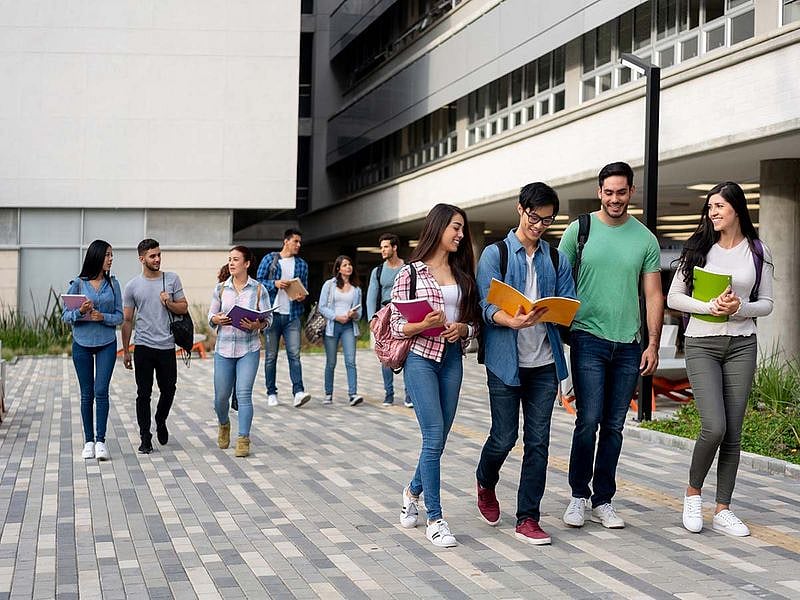Dubai: For many university students across the United Arab Emirates, navigating daily traffic is more than a test of patience, it’s a growing burden on mental health, focus, and motivation.
According to a 2022 study published by UAEU in the Psychology Research and Behavior Management Journal, anxiety (55 percent), depression (38 percent), and stress (29 percent) are prevalent among undergraduates in the UAE, revealing a mental health crisis on campus that often flies under the radar. More recent research confirms that nearly half of sampled students experienced mental health concerns, with anxiety notably the highest on the list at 55.4 percent, followed by stress (45.8 percent) and depression (43.4 percent).
Traffic only deepens this crisis. Long, unpredictable commutes amplifies stress, strain physical well-being, and consume academic focus. One 2022 regional study from Gulf Medical University, published in the Journal of Medical and Health Studies, reported that students who travel more than an hour daily are significantly more likely to experience severe stress (37.5 percent) compared to those with shorter commutes (24.1 percent).
UAE students share their traffic struggles and anxiety
While these figures reflect the broader student population, individual voices capture the urgency. Maria Aljanaahi, 19, a computational systems student in Dubai, shares: “I’m stressed, disoriented, and struggle to catch up after arriving late.” She describes attendance warnings and missed instructions not as institutional oversight, but as blows to her motivation.
Mohamed Alzaabi, 23, a records management and archives student in Abu Dhabi, feels unfairly treated. "I face repercussions for things beyond my control," he says. Mornings that should be a 20-minute drive often stretch to double or triple, leaving him drained before class even starts.
Even after graduation, Shahad Alzarooni reflects on her university years in Sharjah: “I arranged my schedule around traffic, yet still felt punished when late. We’re adults, lateness shouldn’t define our learning.”
And Sheikha Alqahtani, 21, a finance student in Sharjah, recalls missing a midterm due to gridlock, and the emotional aftermath: “Situations like that lower my motivation, because it feels like no matter how responsible I try to be, I can still be penalized for circumstances outside my hands.”
Expert insights: How traffic stress impacts student mental health
Mental health expert Dr. Waleed Alomar, specialist psychiatry at Medcare Royal Specialty Hospital Al Qusais, warns that daily traffic stress should not be underestimated. “Long commutes in congested traffic increase feelings of frustration, fatigue, and anxiety, which can accumulate into chronic stress if experienced daily,” he explained. “This not only impacts mental health, leading to irritability, poor sleep, and decreased emotional well-being, but also reduces motivation for studying and attending classes. Over time, students may feel less engaged, arrive late, or struggle with concentration, directly affecting their academic performance.”
A licensed psychologist from Dubai, Ritasha Varsani. who reviewed the issue adds that traffic particularly hurts students in ways often overlooked compared to adults. “Early wake-ups force students to sacrifice sleep, lowering concentration and overall health. New drivers start out enthusiastic, but in heavy traffic their confidence drops, leaving them anxious and overwhelmed. The rush to arrive on time also fuels reckless driving, creating an unsafe commute culture. And every wasted hour in traffic drains energy that could otherwise go into homework, relaxation, or personal growth.”
The psychologist emphasizes that beyond academic setbacks, these daily stressors compound into a mental health strain, with students worrying about lateness, missed classes, and declining focus, all of which chip away at motivation.
Bev Wylie, Mindshift and Resilience Mentor, highlights the often-overlooked weight of traffic stress: “It’s a hidden stressor that weighs heavily on mental health.”
Calls for flexible university policies to ease stress
Students aren’t just speaking out, they also offer solutions. Mohamed advocates flexible attendance systems that recognize real-world challenges. Shahad suggests staggering start times across institutions to reduce peak-hour congestion. Maria wants a modest grace period for lateness, and Sheikha hopes professors understand when delays are unavoidable.
Reducing commute stress can improve academic success
Experts stress that tackling traffic-related stress requires both individual coping strategies and systemic changes to ease unnecessary strain.
Data show that reducing commute pressure, through flexible schedules, remote options, or better transport, can significantly support students’ mental well-being and academic engagement.
A simple approach of empathy and flexibility from universities could go a long way in improving not only traffic challenges but also the overall success and mental health of UAE students.
Sign up for the Daily Briefing
Get the latest news and updates straight to your inbox
Network Links
GN StoreDownload our app
© Al Nisr Publishing LLC 2026. All rights reserved.
